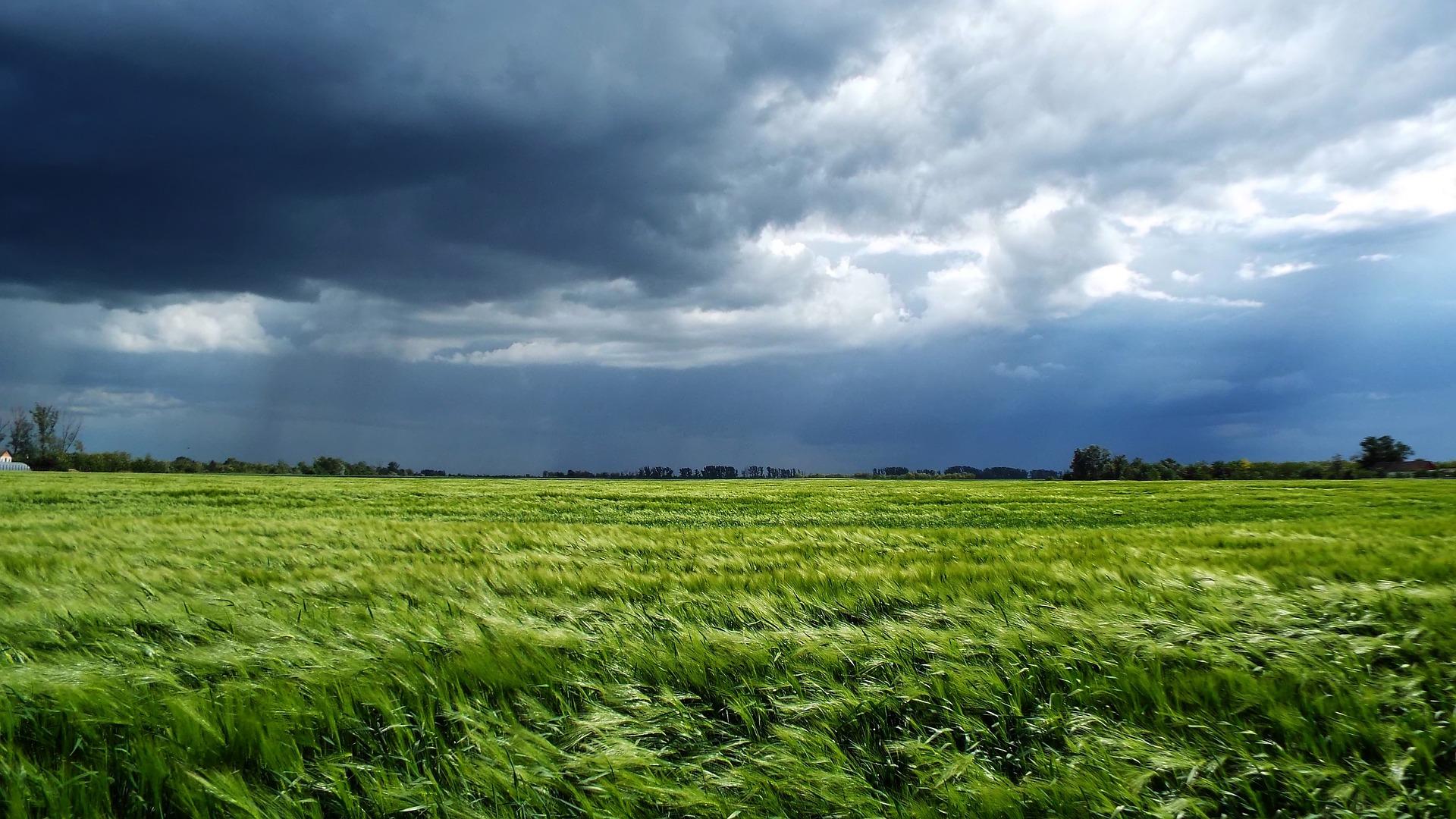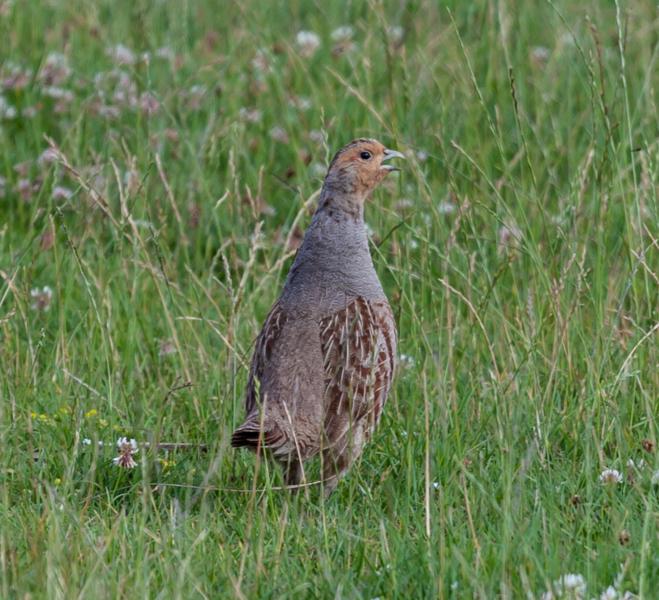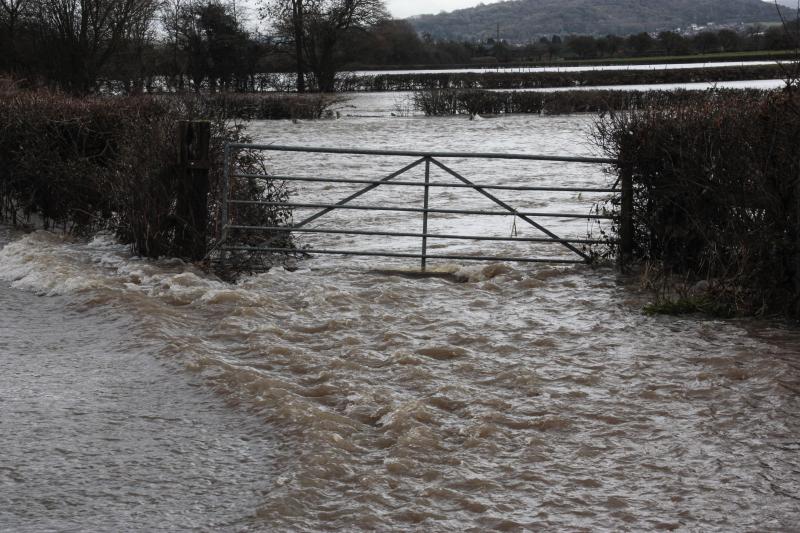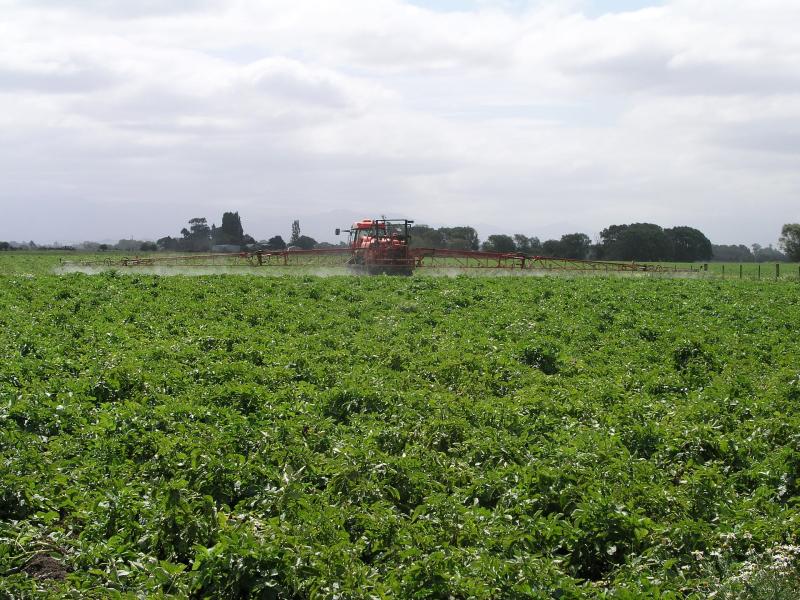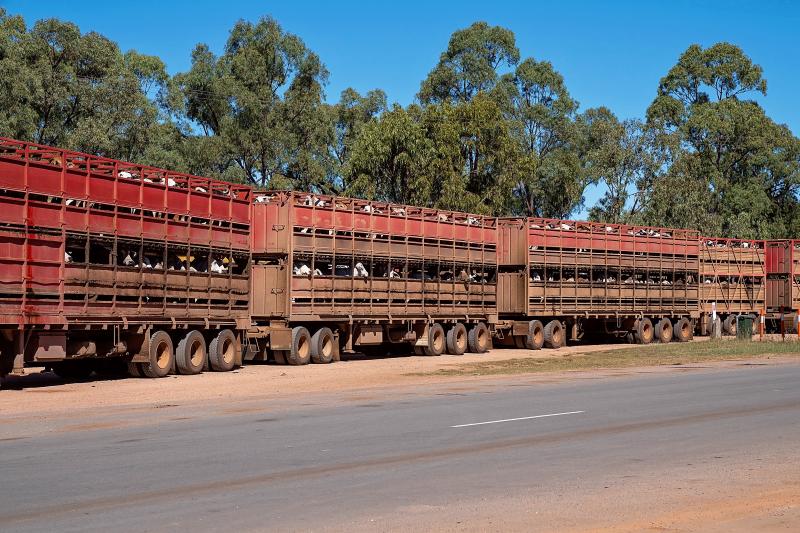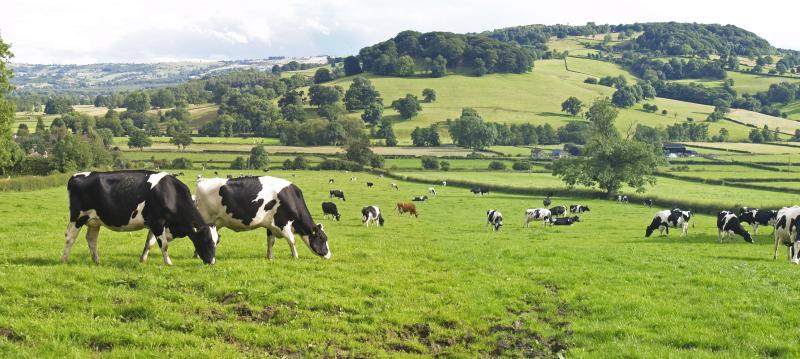Paul de Zylva10 May 2024
It’s hard to put a precise figure on what farmers should get instead of the paltry payments they've scraped by on for years, but here are some factors to consider:
- Public funding for farmers has been dropping while farm incomes remain relatively low, and while costs for feed, fuel and more have soared.
- Farming remains too marginal for many farmers to make a proper living, which is bad for farming now and in the future.
- It’s simply unfair to expect many farmers to make a loss on what they produce, effectively asking them to subsidise supermarkets, the food sector and consumers.
- Many farmers could be attracted to offers to sell up or to use their land for activities which may be counterproductive to growing food, supporting nature and acting on climate change.
- It's inefficient and poor governance to continue dipping into the public purse to pay to clean up rivers and cover other costs of harmful practices, when those costs could be avoided if farmers and landowners were properly supported to transition to the future which they say they want to help secure.
Why's farming in the UK so important?
Farming covers 70% of UK land, so what happens on farms has profound implications both for the nation’s depleted wildlife and degraded environment (including the ability of the UK government to achieve its legally binding targets on climate and nature), and for good use of taxpayers’ money.
Food security
It matters for food security concerns, although these have been hijacked to justify continuing the same intensive industrial farming policies and practices that damage and pollute our soils, rivers and seas, and have driven many wild species and habitats to the edge of existence.
Indeed, it's a supreme irony that, far from ensuring food security, persisting with industrial farming is now undermining our very ability to produce food, because land has been fragmented, soils eroded and waters polluted.
Healthy eating, healthy environment
How farming happens also matters for the quality and quantity of the food we expect when we shop and eat out, including high standards of animal welfare. It can also help boost public access to health and recreation, and improve everyone’s understanding about how food is grown, the role of farming and how to care for the land.
Many farmers are already doing the right thing and want to do more to help the whole of farming raise its game after decades of practices that have made the UK one of the world’s most nature-depleted nations.
Polling routinely shows people want a clean and healthy environment that's improving, rather than seeing decades of deterioration continue. If that’s what we really do want, isn’t it time we paid farmers properly, and more?
Although the media, politicians and others like to pit farmers and environmentalists against each other, we have more in common than meets the eye. Some ministers have cheekily described farmers as being the original "friends of the earth". If they really are to be the stewards and guardians of the countryside in the 21st century, as the farming lobby likes to claim it was during the last century, then it’s time to treat farmers properly. And that means paying them much more than we do now.
The pressures faced by UK farmers
"No Farmers, No Food" is the slogan from recent protests when farmers parked their tractors on Whitehall or blockaded streets, parliament buildings and food depots. Trying to put food on our plates must seem like a thankless task at times. Farmers are at the mercy not only of the great British weather (which is becoming increasingly more extreme due to the climate crisis), but also many sections of society. It must sometimes feel like they’re dangling at the end of a very long chain yanked by governments, supermarkets, the powerful industrial farming lobby, and yes, even sometimes by green groups.
In 2023 and early 2024, swings of flooding and drought have lost many farmers crops and money, leaving them unable to harvest autumn and winter crops or plan what to sow and grow the next season. This inclement weather comes on top of recent rises to the costs of feed, fuel and fertiliser, which doubled and then tripled. Feed prices went up 50%, while fertiliser prices went from £240 to £1,000 per tonne. Government data shows both how prices were rising before Russia invaded Ukraine, and how costs then rose. Dips in costs since then are welcome, but it may be unwise to count on these for long.
Nor do the prices many farmers and growers get for their efforts reflect their costs. Farmers are held to the prices set by others (the supermarkets, "middlemen" and the faceless market), largely to feed the notion that food has to be cheap and that the only way to make food cheap is to maximise production, with all the harmful implications this has for soils, water, wildlife and animal welfare. Many farmers are told how to farm by supermarkets, and by agronomists often paid by the industrial farming lobby which pushes more pesticides and other aspects of intensification.
Separating the wheat from the chaff
Behind the protests are genuine grievances, but those legitimate concerns should be dealt with seriously and separately from the controlling interests of the industrial farming lobby.
Some of the protests both in the UK and in mainland Europe have been hijacked by malign interests aligned with climate change denial, and opposed to action on reducing pesticide use to clean up our rivers and seas so that we can see more wildlife on farms.
Just as the mantra of "energy security" has been used to press for more of the same dependence on costly fossil fuels, which have caused the energy and climate crisis in the first place, the industrial farming lobby loves to claim it has farmers’ backs, while prolonging its own control over how farmers farm, manage and look after the land and use its costly inputs.
The effect of industrial farming is well documented, including in the State of Nature reports. The idea that there's only one way to farm, and that way has to be dictated by seed and pesticide corporations and by the food and drinks industry, is being recognised as false. But it’s still up to political leaders to stop allowing these vested interests to dictate how farming operates, which not only affects the countryside but also isn't doing most farmers many favours either.
A Brexit dividend for farming?
The UK’s dire state of nature isn't cost free. One way or another, taxpayers still pick up the bill to clean up rivers and revive degraded soils, and to pay the costs of flooding, to curb flood risk and to reverse decades of environmental decline, including soil degradation and sewage in rivers.
The downsides of certain farming practices don't fit with our image of farming as guarding the countryside and our "green and pleasant land". The UK government says it now wants this to change with its post-Brexit approach to farming, nature, climate, water and more.
In its Environment Improvement Plan (EIP), the government says it aims to: “Support a transformation in the management of 70% of our countryside by incentivising farmers to adopt nature friendly farming practices,” and “Reward farmers for actions to reduce risks and impacts from floods, droughts, and wildfires through our new future farming schemes.”
Launching the EIP in January 2023, then Environment Secretary Thérèse Coffey said: “Our transformation on support for farmers and landowners to prioritise improving the environment, reducing carbon emissions and enabling sustainable food production is absolutely symbiotic and truly world-leading.”
What does novice farmer, Jeremy Clarkson, make of it? Overlooking the fact that healthy soils produce crops and store more carbon at the same time, Mr Clarkson asked in his Sunday Times article: “So, what about food, which, after all, is the whole point?... It’s like they’ve said ‘food damages the environment so let’s not bother with it. Better the soil is used to store carbon.’ Which means there will be a soil police too. And a footpath police. And a curlew police.”
He must have missed Thérèse Coffey also telling landowners that “the choice is not producing food or doing environmental schemes, it’s about making space for nature and that must go alongside sustainable food production".
More from Mr Clarkson later.
Failing farmers for years
The most important change arising from Brexit is the UK no longer being part of the EU’s flawed and harmful Common Agricultural Policy (CAP), as well as the equally disastrous Common Fisheries Policy (CFP).
True, farmers had grown used to the direct payment of taxpayer money, regardless of how that money might worsen pollution, climate change and nature’s decline. And the transition to the new system of "public money for public goods" was never going to be as easy as Brexit backers claimed. But being free from the CAP does at least signal that the UK government knows farming needs to change and play its full part in reversing nature’s decline, and more.
The government deserves full marks for that, but its roll-out of the new Environmental Land Management (ELM) and Sustainable Farming Incentive (SFI) has caused angst, not unlike past administrative failures to pay farmers promptly.
Rewarding farmers for their stewardship as well as their produce
Just as prompt payment always helps, properly rewarding farmers makes sense on several levels if we really do want to bring nature back, at the same time as recovering from decades of the downsides of intensive agriculture.
What if taxpayers didn't have to keep paying twice (or more), paying subsidies to farmers with one hand while footing the bill for pollution, flooding and other impacts of intensive farming with the other? Proper rewards for better managing land, soil, water and natural assets, and for making the UK largely self-sufficient for much (60%) of its food, would also help the considerable number of hard-pressed farmers stay on the land and in business, instead of being on the wrong end of a dodgy deal.
It’s truly scandalous that too many farmers are still being paid less than the costs of production for their milk, eggs, chicken, pork and other produce. Which other sector would accept as fair and reasonable having to sell its wares below the cost of production? Yet that's what too many farmers and growers have been expected to do for years. This contrasts with how supermarkets and the food sector have led consumers to think that they can have "cheap" chicken and other produce, without squaring with them about the realities behind "cheap" and often over-processed food.
The pressure on farmers to take the hit isn't new. In fact, it started long ago. In 2004, for example, chicken producers were paid 50 pence per kilogramme (p/kg) for the UK’s meat of choice. In 2006 that fell to 48.5 p/kg, even though the average cost of rearing rose to 54.69 p/kg, leaving producers making a loss of 6.2 p/kg.
That was then. As consumers have come to expect low prices, producers’ costs have been rising for some time due to crop failures and rising energy costs, even before Russia’s war on Ukraine. But cynical operators woke up to that war presenting them with new opportunities to twist apparent concern about energy and food security to fuel their lobbying against what’s actually needed to shift to a climate-safe and nature-intact world.
Cheap is expensive, even chicken feed
The reality for farmers and growers has been a doubling, tripling and sometimes quadrupling of the costs of everything, from feed and bedding for livestock to energy, transport and haulage, from packaging, storage and refrigeration to rent and overheads.
Ironically, the major cost for poultry producers, chicken feed, is no longer cheap, rising 50% since 2020/21 alone. The picture is similar for producers of eggs, pork and other food mainstays. Although prices of "cheap" chicken have been rising, the food sector (supermarkets, restaurant chains and food brands) continues to perpetuate the myth of "cheap" food, spending about half a billion pounds a year on advertising and marketing, often featuring "cheap" food, to drive sales, awareness and market share.
Yet farmers and producers are still nailed down on the price they get for what they produce. The food sector needs to stop abusing the goodwill of farmers and growers, expecting them to shoulder the costs of production that sees them make little or no profit, and often a loss.
Commenting on rising prices and food shortages, an article in The Sun in early 2023 said: "Times are crippling, but we should all pay extra for our eggs and meat. Help hard-working British farmers make their farms more sustainable, more profitable and, crucially, more enticing produce-wise.”
Consumers do need to wise up, but it would help if retailers started being straight with their customers about the real costs of "cheap" food, including the actual cost to producers and, in the case of cheap chicken, the shocking effects of intensive poultry production on the quality of our air, soils, water and more.
Falling funding for farming
Even with support from the public purse, many farmers still struggle to make farming pay. Official figures show that many farms still barely break even. In recent years, only a fifth (16-20%) of farms have seen a positive Farm Business Income (FBI) after costs, and only about a quarter (26-28%) saw their FBI exceed £50,000.
That's not much to live on for what's also long and hard work. Farmers Weekly’s Fit2Farm survey finds farmers working an average of 65 hours a week, with days off and holidays a rarity. Many farmers are also working well beyond retirement ages of other professions, with 60 being the average age of farmers.
Although it sounds a lot, the actual amount of public funds for farming fluctuates and has been around the £3-4 billion mark for many years. Meanwhile expectations and costs have risen. For example, funding for UK farming fell from £4.3 billion in 2010 to £3.9 billion in 2016 when, on the Brexit campaign trail, Boris Johnson told farmers at Gisburn cattle market in Clitheroe, Lancashire that they'd get the same money if the UK left the EU, saying: "We will guarantee the support for UK farming at its current level, 100 per cent."
100% of a decreasing sum isn't a great deal. In 2019, 3 years on from the Brexit referendum and just before the UK left the EU in January 2020, UK farmers received £4.7 billion in EU funds. That sum fell to £3.4 billion in post-Brexit 2022.
The UK government’s promise to farmers that funds would stay the same as they'd been before Brexit looks flimsy when the funds have been falling, and when the government and public have reasonable expectations that farmers and landowners will do more and play a fuller part in nature’s recovery and climate action, including food security.
Is the NFU signalling change?
Friends of the Earth and the National Farmers Union (NFU) don't always see eye to eye, far from it. But while the NFU still has to decide whether it really wants to be part of a truly sustainable farming future, instead of pushing for more dependence on chemical and other inputs as well as opposing measures to restore nature, it has sometimes shown that it might want to change.
For example, like us, the NFU has called for farming policy post-Brexit to raise, not reduce, standards, saying that the new system “must offer a golden opportunity for UK farming to become a global leader in climate friendly food and farming”. The NFU also called on the government to “honour its commitment to safeguard our food safety, environmental and animal welfare standards” and added that: “It’s imperative we don’t allow those high standards to be undermined in future trade deals by imports of goods which would be illegal for our farmers to produce here."
We agree. Unfortunately, the government’s trade deals risk allowing UK farmers to be undercut by lower quality imports such as meat from Australia and New Zealand. Other trade deals could have been scrutinised by MPs who claim to be on the side of farmers, except that in the frenzy to "get Brexit done," MPs in the House of Commons gave up their right to scrutinise trade deals.
So much for the claim that Brexit would restore power to the UK parliament. Trade deals are now the preserve of whoever is Trade Secretary at the time. No questions, and no right to check what deal’s being struck.
The NFU’s environment forum chair Richard Bramley said: "Our farmers are committed to enhancing and improving our landscapes and working to benefit our soil, watercourses and wildlife in a rapidly changing world with huge external pressures. [...] British farmers are committed to delivering net-zero agriculture by 2040, and the NFU remains committed to working with Defra (Department for Environment, Food and Rural Affairs) to improve its Environmental Land Management offer so the schemes can deliver the statutory environmental targets Government ministers recently agreed." He concluded:
It’s in all our interests to ensure sustainable, climate friendly British farming in the future, with farmers producing food alongside their work in maintaining and protecting the environment.
Again, we agree, but this kind of talk is all too rare from NFU leaders.
Time to pay farmers properly
Meager public funds to support farmers are almost £1 billion less than in 2010, and the money is being spread more thinly. Many farmers receive nothing and so farm without any expectation of contributing to government aims for nature, climate, pollution and more.
The government’s new Sustainable Farming Incentive (SFI) started by offering farmers less for doing more, paying out £98 per hectare when upland farmers used to receive £240 per hectare, for instance. In early 2024, we and others welcomed new Environment Secretary, Steve Barclay MP, upping some of the payments for farmers in England. But there's still not enough to go round, and many farmers have simply fallen out of the system. All of this would be avoidable if the government made proper payments for the gains and cost savings being made by shifting to sustainable farming practices everywhere.
As we advocate, the high-profile upland farmer and author, James Rebanks, has also called for a proper price for farmers:
“If we’re shifting to ‘public goods’ then we should pay the proper price of public goods. This is a system that’s designed to pay too little. It’s a system that’s designed to fail and what they’re really trying to do is market liberalisation on environmental goods, so instead of the state guaranteeing that I get paid for producing public goods because I’m making your life better, or somebody else’s life better – reducing flooding, or trapping carbon, helping climate change – what they’re really doing is unleashing a whole market here for ‘green’ financiers and others in carbon and other things.
“There’s only one question that matters in the uplands given the climate and biodiversity crisis that we’re facing. It is: ‘does this money buy the change that we want to see in the uplands?’ And the answer is ‘no’.”
Where could the money come from?
In the scheme of things, although £3 billion is a lot of money at any time, not least in an economic downturn, it’s relatively modest given that so much depends on whether farmers and landowners do the right thing. And investing in sustainable farming will pay dividends down the line: in public health, in mitigating the impacts of climate change, for example enhancing UK food security, and in supporting nature to flourish once more.
Such considerations indicate that raising public funding is overdue. A doubling from the lowly £3-4 billion a year to the £6-8 billion mark would be more responsible and realistic, and it would be better value for taxpayers.
Competing ministers and Treasury mandarins will baulk at the idea of giving farmers more money and will point to tight budgets. Of course, budgets are always tight, but not so much that they can't find money when they really want to do something. It’s a question of what the government chooses to prioritise. It's very ready to cut budgets in one department to boost budgets in others.
For example, Defra’s budget fell in real terms by a third (33%) in the 5 years from 2010/11 to 2016/17. By 2022/23 Defra’s budget was £4.6 billion, but that looks set to drop further given recent decisions in Treasury Spending Reviews and Chancellors’ Budgets.
It's not as though the government is doing everything it could to avoid wasting money, or to collect more. For example:
- Freezing fuel duty (for 14 budgets in a row) may be a popular, eye-catching policy, but it costs the government and taxpayers, £15 billion by 2029 according to the Office of Budget Responsibility (OBR). Supporting farmers properly with similar sums could be popular too.
- £4.5 billion has been identified by MPs on the Public Accounts Committee (PAC) as pandemic payments made by error or fraud.
Notably, the government says its much-hyped trade deal with Australia will bring £2.32 billion a year into the UK by 2035. £2.3 billion a year by 2035 is similar to the current amount paid to farmers in England alone.
Becoming true "friends of the earth"
Back to Jeremy Clarkson, who claimed to have seen the future of post-Brexit farming in his Sunday Times article of 19 February 2023: “In the new order worms mattered more, and voles and earwigs.”
Mr Clarkson seems to have come on since that apparent lack of knowledge about soils. By now, he may have genned up on how worms are doing their best for farm soils in an increasingly hostile environment for wildlife. At least he did get closer to good farming sense when he wrote: “And you, the taxpayer, will have to pay for all of them, and what do I get? About half of what I got when we were in the EU.”
Toward the end of his piece, Mr Clarkson relents again: “In short, I feel compelled to try to keep this tiny bit of land in the best possible shape. I want you to enjoy the views. And I want to take care of everything. And I’ve met a lot of farmers now and all of them think the same way.” Let’s call that progress, because the idea that we can continue to degrade soils, pollute water, and deplete bees and other wildlife while expecting our land to be truly "green and pleasant," not just superficially green to look at, is fantasy farming.
It’s also foolish to expect farmers to play their part for paltry sums. Properly paying farmers who do the right thing, and ending the injustice of them being paid less for their goods than they cost to produce, would make it easier for farming to play its full part, not only in food security but also in nature’s recovery and action on climate change, which farmers see the effects of every day.
Properly rewarding farmers would also make farming more viable and attractive to new entrants, without being hit with a triple whammy of unfairly low prices for their produce, unpredictable energy and feed prices, and a falling share of public funds just when everyone wants farming to raise its game.
Ministers, farmers and the public all say the nation wants farming to succeed without the many downsides of over-industrialised agriculture. Paying farmers and growers properly, and more, would help secure the high standards of farming and management of the land everyone says they want. And it would help all those working in farming, from struggling hill farmers to millionaires like Jeremy Clarkson, to truly earn the "friends of the earth" name.


